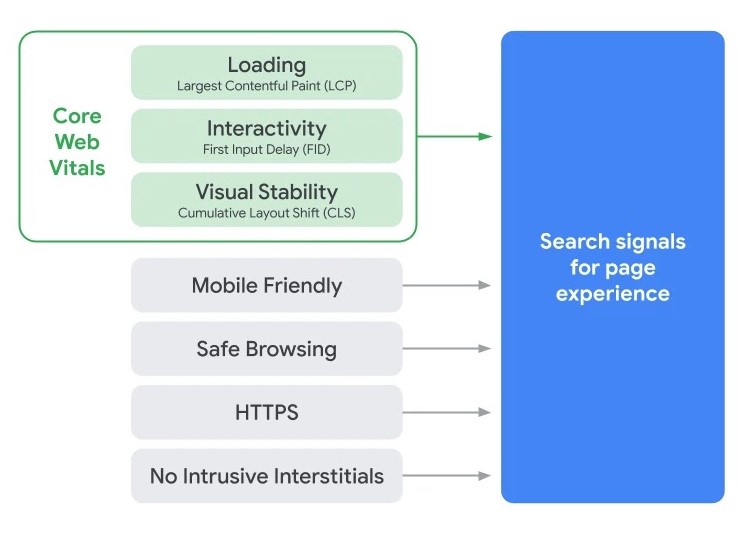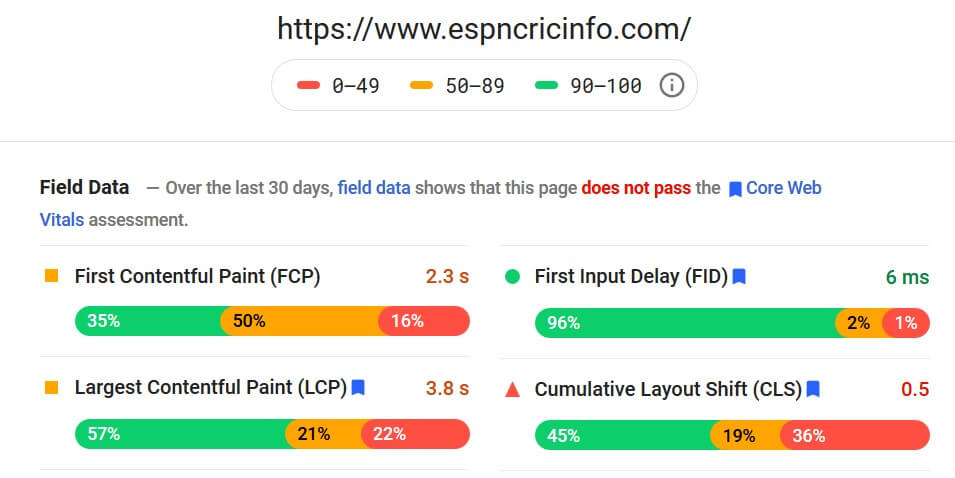Google announces future 'page experience' update as SEO and UX increasingly overlap
SEO | 5 MIN READ
Google has announced a future update to its algorithms that increases the importance of UX to SEO.
The announcement states this will come into effect in 2021, with six months advance notice. In part, this timescale is designed to allow businesses some breathing room while they deal with the impact of the COVID-19 crisis – suggesting that Google has chosen to delay the launch of this change.
The key points of what Google has announced are:
- Introduction of a new measure, Cumulative Layout Shift (CLS) – designed to assess visual instability on the page
- Consolidation of existing metrics relating to loading speeds and user experience under the banner of 'page experience'
Our view is that this is not as big a change as it may sound – after all, most of the measures under page experience are not new to the algorithm. At Fresh Egg, we’ve employed a user-centric approach to SEO, including UX considerations, for some years – for us; this is a healthy case of evolution rather than revolution, something to embrace rather than lose sleep over.
This follows another recent announcement from the team behind the Chrome browser of 'Core Web Vitals', their terminology for some (not all) of the metrics that comprise page experience within the search algorithms.

The changes in terminology and definition do offer some extra clarity on which loading speed metrics SEOs should focus on. This is also welcome – too much focus is placed on the simplistic 0-100 scores provided in some of Google’s free tools, and a move away from this will help SEOs to provide a more considered analysis of loading speed performance. These tools are already being updated to include the new metrics, meaning there is plenty of time to familiarise with them before the update lands.
At the same time, the barrier to inclusion in ‘Top stories’ news panels is being lowered to reduce the importance of the AMP framework in this respect. Take-up of this technology remains low outside of media outlets, but I suspect this is unlikely to result in any significant change to what content is shown in these panels.
Do you need help with a website page speed issue?
This announcement should not come as a shock to anyone. If you are driving traffic to your website only for that traffic to disappear as soon as it has arrived, then you are wasting your efforts, and crucially, a visitors time. Remember, Google wants its user base to remember it favourably. For Google, sending visitors to websites that offer a poor user experience is simply not in its interests.
’User time’ is a precious commodity. If users are ultimately voting against a poor experience by navigating away as quickly as they have arrived, then why should any business expect to be maintain strong visibility and traffic? In all sectors there will be other websites that provide a better experience for the user, and those that do should rightly be rewarded. SEO is already far beyond keywords, and if you continue thinking in that way, then as SEO evolves, you will get left behind.
Lee Colbran, Fresh Egg co-founder
What is Cumulative Layout Shift (CLS) and how does it work?
CLS is a new metric which measures 'visual instability', those annoying jumps and shifts on the page as elements load or get resized. On very slow sites, these can occur after the user begins trying to use the page and so can be extremely disruptive.
All users have surely suffered poor experiences like this – slow loading speeds, with buttons and content leaping around like the crew of the Enterprise.
The nightmare scenario of the cancel button being replaced by the submit button just as it is clicked is neatly highlighted in a video published in Google’s announcement post.
Google will calculate a score for each page, with below 0.1 representing a good experience and above 0.25 the opposite. Crucially, this is based on real user experiences recorded through the Chrome browser, which provides a more complete and accurate picture than snapshots taken during crawling – looking after your users is looking after Google.

What impact does this have on rankings?
An important point here is that Google still wants the best content to shine through in its results – after all, isn’t content also part of the user experience?
In this respect, it’s perhaps helpful to think of page experience as more of a tie-breaker than a key ranking factor, as highlighted by this quote from Google’s announcement:
While all of the components of page experience are important, we will prioritize pages with the best information overall, even if some aspects of page experience are subpar. A good page experience doesn’t override having great, relevant content. However, in cases where there are multiple pages that have similar content, page experience becomes much more important for visibility in Search.
So, if you and a competitor have very similar quality content, improving page experience could help your site gain the advantage. Equally, however, making further content improvements will help you to do this and maybe quicker to achieve for some.
Inevitably, some sectors will be more at risk than others. The media and publishing industry, with its over-reliance on advertising, injected videos and the like, is an obvious candidate. Problems like this are often a consequence of third-party integrations, and nothing to do with the site’s own construction.
How does the rise of UX affect SEO professionals?
What implications does this have for SEO teams, whether agency or client-side? I think what this shows is the continuing diversification of skill sets required for SEO. The complete SEO needs to be a technical specialist (preferably with coding ability), data analyst, content expert, creative force…and, increasingly, a UX authority. In reality, people who can fulfil all these skills are extremely rare, not to mention strong communication skills and commercial awareness.
More likely, a good SEO team needs a complementary mix of people who can collectively offer up these skills – which is still no mean feat to build from scratch. Really then, we need to stop thinking about 'SEO' as one all-encompassing job title and move towards a more nuanced view based on more specific specialisms.
It’s tempting to think that this means that SEO just becomes part of other job roles – why not have developers, data analysts, copywriters, marketing executives and UX specialists add SEO to their portfolio? The old 'SEO is dead' trope raises its head once more. The reason this is a risky approach is that SEO is, undeniably, a specialism in its own right – the ability to put all of these things into the context of what a search engine is trying to do, and how people use search engines, is a skill often lacking in generalist marketing teams.
So this evolution towards UX brings more opportunity for collaborative working – with front-end developers, CRO experts and so on – but it also increases the potential for 'border friction' as the lines between these specialisms continue to blur.

Want to know more about the Page Experience update?
We can help ensure that your website is as ‘inclusive’ as possible with the rollout of the Page Experience update.
Join our email list like thousands of other marketing professionals to get updates on key industry changes, early access to free resources and exclusive invitations to Fresh Egg events in your inbox.